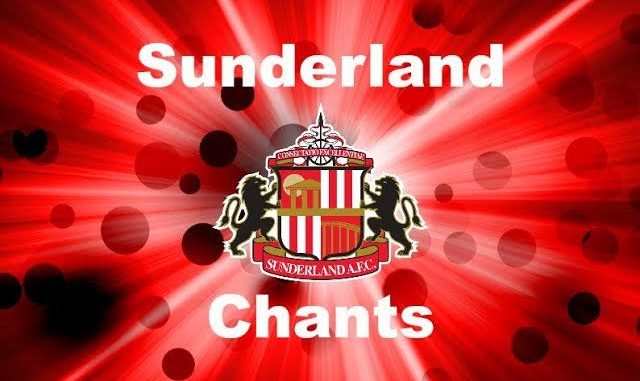
EFL Bans Sunderland Chant “Haway the Lads”: A Look into the Decision and Its Impact

In an unprecedented move, the English Football League (EFL) has reportedly imposed a ban on the iconic Sunderland chant “Haway the Lads,” sparking debates among fans, pundits, and even cultural commentators. For many fans, particularly those in Sunderland, this chant represents more than just football—it is woven into the fabric of their identity. The EFL’s decision has been met with a mixture of disbelief, anger, and confusion, raising questions about the future of fan culture, the freedom of supporters to express themselves, and the potential erosion of traditional club identities.
### Understanding the Importance of “Haway the Lads” to Sunderland Fans
The chant “Haway the Lads” is steeped in local tradition and is as iconic in Sunderland as the “You’ll Never Walk Alone” anthem is to Liverpool fans. The chant encapsulates the pride, passion, and resilience of Sunderland supporters, who have stood by their club through thick and thin, including periods of relegation and struggles to ascend back to the Premier League.
“Haway,” a Northern dialect term, is roughly equivalent to “Come on,” but with an added fervor and spirit that captures the essence of the club and its history. “The Lads” refers to the team, but in a broader sense, it also represents the community—fans often consider themselves a part of “the Lads,” cheering not only for the team on the field but for the community itself.
Over the years, the chant has become a rallying cry, uniting fans across generations. From young supporters attending their first game to seasoned fans who have witnessed the highs and lows of the club’s journey, “Haway the Lads” remains a symbol of loyalty and pride.
### The EFL’s Justification for the Ban
The EFL’s rationale behind the ban has not been completely detailed, but sources suggest that the governing body is attempting to curb chants deemed potentially offensive or aggressive. In recent years, the league has been taking steps to create a more inclusive environment for all supporters, a policy that includes cracking down on certain language and chants that might be construed as harmful or intimidating.
There is speculation that the EFL may view certain interpretations of “Haway the Lads” as promoting an aggressive atmosphere, which could discourage families or new fans from attending matches. Additionally, there may be a concern that other clubs’ fans could feel alienated by the unique language and culture of Sunderland supporters, although this argument has been met with significant skepticism and criticism.
Many Sunderland fans and football aficionados argue that “Haway the Lads” is a chant that has always been used positively, celebrating the team and the supporters’ spirit. They assert that the chant is in no way hostile and that banning it would unjustly undermine the identity of Sunderland fans without addressing the real issues of aggression or hostility in stadiums.
### Fan Reaction and Pushback
The reaction from Sunderland fans has been overwhelmingly negative, with many expressing disappointment and disbelief. Social media platforms have been flooded with comments from fans who feel that the EFL’s decision is a direct attack on their cultural heritage. Supporters’ groups have also begun organizing to contest the ban, with some planning petitions and protests to express their disapproval.
Fans argue that the ban is an overreach that shows a lack of understanding of regional identity and football culture. For them, “Haway the Lads” is not just a chant but a piece of heritage that should be celebrated, not suppressed. Some have pointed to the EFL’s efforts as an attempt to sanitize the sport in a way that overlooks the importance of regional identity and local culture in football.
### The Broader Impact on Football Culture
This decision has led to a larger debate within the football community about the role of governing bodies in controlling fan expression. While the EFL and other organizations, such as the Premier League, have introduced initiatives to create a more inclusive environment, some argue that the pursuit of a family-friendly atmosphere could be eroding the authenticity of fan culture.
Football in the UK has always been known for its passionate supporters, unique chants, and fervent atmospheres. Banning certain chants, many argue, could lead to a sterilized stadium experience where fans feel disconnected from the clubs they love. Supporters fear that such bans could set a precedent, leading to further restrictions on what fans are allowed to chant or how they are allowed to express their loyalty.
Critics of the EFL’s decision warn that stripping clubs of their traditions in the name of inclusivity risks alienating the core supporters who have stood by their teams for decades. There is a concern that by imposing these types of restrictions, governing bodies could inadvertently dilute the passion and distinctiveness that make English football so special.
### Potential Path Forward and Compromise
The EFL now faces the challenge of balancing its objective of fostering an inclusive environment with respecting the cultural heritage of clubs like Sunderland. Some have proposed that a compromise could be reached, where clubs and fans work together with governing bodies to create guidelines for chants rather than enforcing outright bans. This collaborative approach might allow the EFL to address concerns about inclusivity without erasing important elements of football culture.
Sunderland fans have already voiced their willingness to engage in dialogue, but they are firm on the point that “Haway the Lads” is non-negotiable. It represents too much to the fanbase—its removal, they argue, would be a disrespectful and unwarranted encroachment on their right to express their identity.
### Conclusion
The EFL’s decision to ban Sunderland’s chant, “Haway the Lads,” has ignited a fierce debate over the balance between inclusivity and preserving club heritage. For Sunderland fans, the chant is more than just a phrase—it’s a part of who they are, a connection to the past, and a rallying cry for the future. As the debate continues, one thing remains clear: football is more than a game; it’s a cultural institution where tradition, identity, and community converge.
The EFL now has an opportunity to reflect on the implications of its decision and consider a solution that respects the history and spirit of Sunderland’s fanbase. Only time will tell if a compromise can be reached, but one thing is certain—the passion of Sunderland fans will endure, with or without “Haway the Lads.”

Leave a Reply